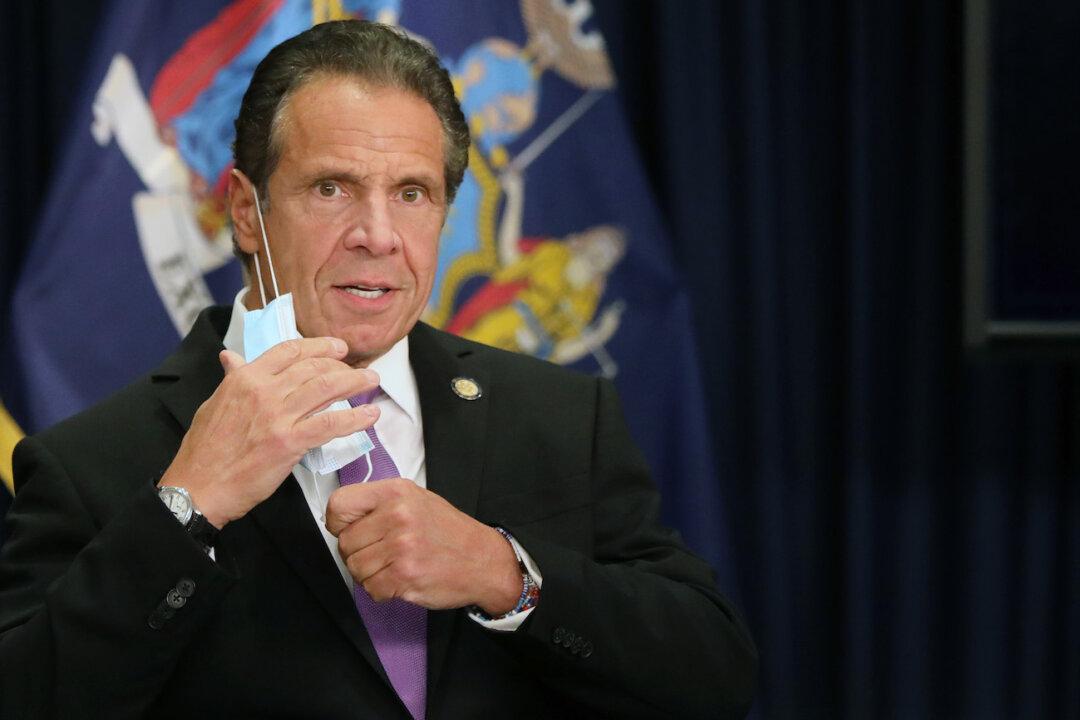New York Gov. Andrew Cuomo on Thursday criticized the U.S. Supreme Court’s ruling against his COVID-19 restrictions on houses of worship, downplaying the decision as “irrelevant” and suggesting the top court’s position on the issue reflects its partisan leanings after the Trump administration placed three conservative justices on the bench.
In a 5-4 decision on Wednesday, the court ruled against Cuomo’s tightening of restrictions on participation in religious services, which imposed 10- and 25-person capacity limits in churches and other places of worship in parts of New York where cases of the CCP (Chinese Communist Party) virus were rising. The case was the first in which the vote of newly appointed Justice Amy Coney Barrett proved decisive, with the court determining that such curbs violated the First Amendment right of religious freedom and arguing that Cuomo’s restrictions “single out houses of worship for especially harsh treatment.”





